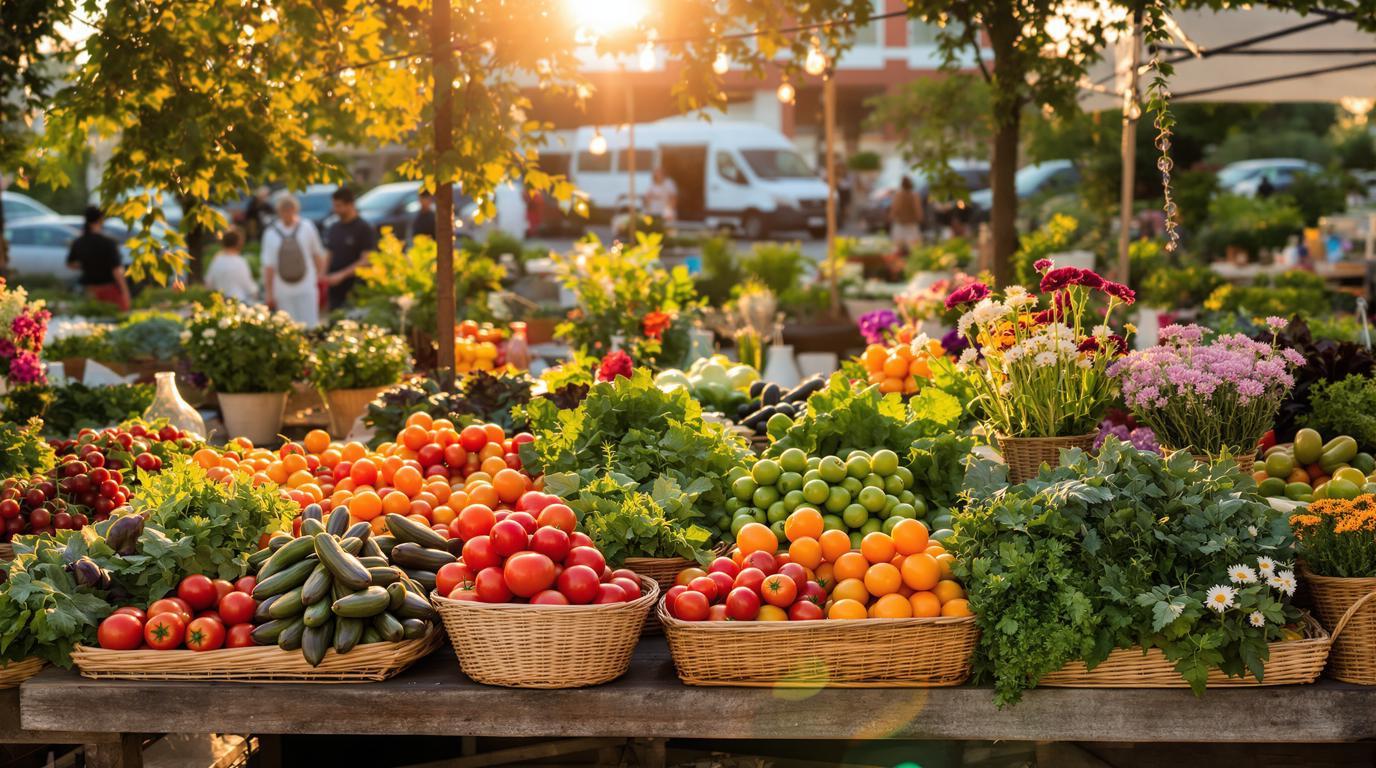Beyond the trendy food halls and tourist-packed markets lies a thriving farmers market scene in North Carolina’s Triangle region that’s begging to be discovered. While Raleigh, Durham, and Chapel Hill boast several well-known food destinations, savvy travelers and locals are turning to these hidden agricultural gems where authenticity and community spirit create unforgettable food experiences.
The unexpected “pay what you can” urban farm stand
Perhaps the most revolutionary market experience in the Triangle is the Raleigh City Farm Farm Stand. Located at 800 N. Blount Street, this urban oasis operates Wednesdays from 4-7 pm (April through mid-November) with a groundbreaking “pay what you can” model. The concept makes fresh, local produce accessible to everyone, regardless of economic status.
“We believe good food should be available to all community members,” explains a farm volunteer. “This isn’t just about selling vegetables—it’s about creating a more equitable food system.”
Family fun at Phillips Farms
Tucked away in Cary, Phillips Farms Farmers Market (6720 Good Hope Church Road) offers more than just fresh produce. This family-owned operation transforms weekend shopping into a memorable outing with a children’s cow train that delights younger visitors while parents browse the farm’s bounty every Saturday from 9 am to 3 pm.
On select weekends, the market expands with additional vendors and family-friendly activities that showcase the agricultural heritage of the region in a way that commercial venues simply cannot match.
The vibrant culture-focused market experience
Ninja Cow Farm Market rotates between Raleigh and Durham locations, making deliberate efforts to reach underserved communities. The market particularly shines at its Raleigh location (1436 Rock Quarry Road) on the 4th Sunday of each month, where innovative florists and juice vendors create an atmosphere that’s as much cultural gathering as shopping experience.
The community-powered Apex Farmers Market
Every Saturday morning from 9 am to noon, the non-profit Apex Farmers Market (1479 Beaver Creek Commons Drive) demonstrates the power of community-focused agriculture. Unlike commercial operations, this market prioritizes sustainable living practices and wellness alongside its diverse selection of produce, baked goods, and artisanal products.
“What makes our market special is the relationship between farmers and consumers,” notes a regular vendor. “People come here not just for groceries but for the stories behind their food.”
The artistic fusion at Rebus Works
The Saturday Market at Rebus Works (301 Kinsey Street, Raleigh) stands apart by blending art with agriculture. Open Tuesday through Saturday from 10 am to 7 pm, this unconventional market brings together farmers, bakers, craftspeople, and designers in a creative space that challenges the traditional farmers market concept.
The result is a shopping experience that feeds both body and soul—where you might purchase fresh honey while admiring the work of local artists.
Tips for the triangle market explorer
Before setting out on your market adventure, verify operating schedules as many operate seasonally or on specific days. Bring reusable bags (a practice strongly encouraged throughout the Triangle) and engage with vendors—their stories often enhance the products they sell.
For a complete Triangle experience, consider combining your market visits with other regional attractions. Ancient markets elsewhere might have centuries-old traditions, but these Triangle gems have something equally valuable: authentic community connections.
Unlike hidden island paradises that require extensive travel, these markets offer accessible cultural immersion just minutes from major highways. The region’s farm-to-table culture rivals experiences found in European culinary destinations while maintaining distinctly Southern roots.
Whether you’re seeking fresh ingredients, handcrafted goods, or simply a glimpse into authentic North Carolina culture, these underrated markets deliver experiences that big-box stores and tourist traps never could. They represent the beating heart of a region where food isn’t just sustenance—it’s community, history, and art combined.
